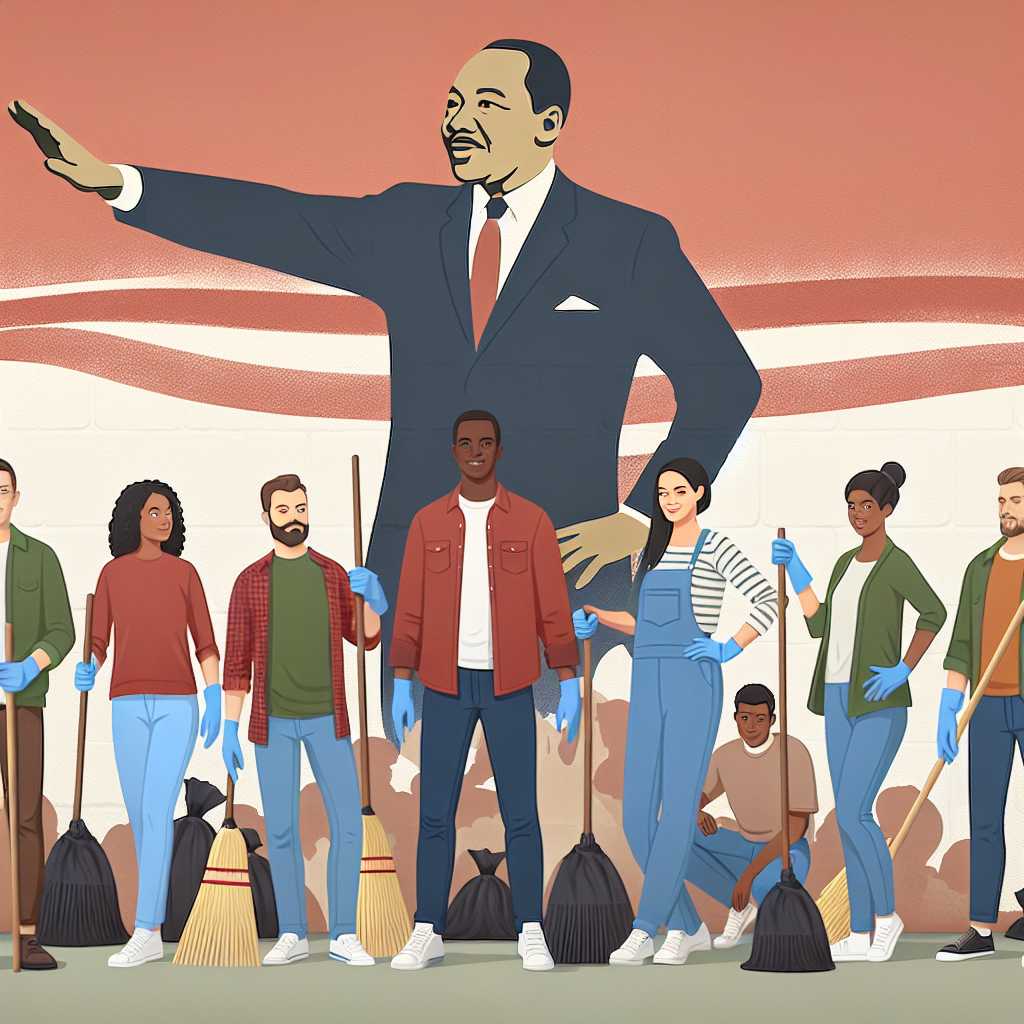The Commemoration of a Civil Rights Legend: Martin Luther King Jr. Day
Martin Luther King Jr. Day stands as a poignant reminder of the journey of civil rights in America and celebrates the life and accomplishments of one of the movement’s most iconic figures, Dr. Martin Luther King Jr. Occurring on the third Monday of January each year, this federal holiday honors King’s January 15 birthday, commemorating his legacy of nonviolent activism against racial discrimination. With its inception being a story of persistence mirroring the civil rights movements’ ethos, Martin Luther King Jr. Day is not only a holiday but a powerful symbol of the struggle for equality and the continuing efforts for social justice.
History and Establishment of Martin Luther King Jr. Day
The journey toward establishing Martin Luther King Jr. Day began soon after Dr. King’s assassination on April 4, 1968. Congressman John Conyers introduced legislation for a federal holiday four days after King’s death, but it wasn’t until 1983 that President Ronald Reagan signed into law a bill creating a federal holiday to honor Dr. King, spurred by public campaigns and demonstrations that amassed millions in support of formal recognition.
Celebrations and Observances of MLK Day
Across the country, the day is marked with parades, marches, and educational programs designed to engage communities in understanding the historical context and contemporary relevance of civil rights issues. Schools and universities commonly prepare seminars or lectures dedicated to discussing Dr. King’s work, while community organizations engage in service projects, reflecting King’s message that “everybody can be great because everybody can serve.”
Dr. Martin Luther King Jr.’s Impact on Civil Rights
A defining figure in the American Civil Rights Movement, Dr. King advocated for nonviolence and civil disobedience as tools against racial institutionalized segregation in America. His leadership during pivotal moments such as the Montgomery Bus Boycott and the 1963 March on Washington, where he delivered his historic “I Have a Dream” speech, etched his efforts into the global consciousness and profoundly influenced the trajectory toward racial equality.
Challenges and Critiques in Commemoration
The establishment and observance of Martin Luther King Jr. Day have not been without resistance and critiques. Some states were reluctant to observe the holiday, reflecting deep-seated racial tensions, while others criticized the commodification or watering down of Dr. King’s complex legacy into palatable messages simplifying his transformative ideologies.
Significance in Today’s Context
Today, Martin Luther King Jr. Day galvanizes discussions around race relations, systemic inequality, and the power of nonviolent protest in the context of social change. Current social movements draw parallels with the activism sparking reflections on progress made and strides yet to take toward equity.
The Future of MLK Day
As society continues to confront issues concerning race, justice, and equality for all, reflections during Martin Luther King Jr. Day foster active discourse around these topics while promoting civic engagement rooted in Dr. King’s values.
Notes
Image description: A diverse group of people volunteering at a community cleanup event to commemorate Martin Luther King Jr. Day; in the background is a mural depicting MLK with his iconic pose gesturing freedom and unity.
OYvdq

